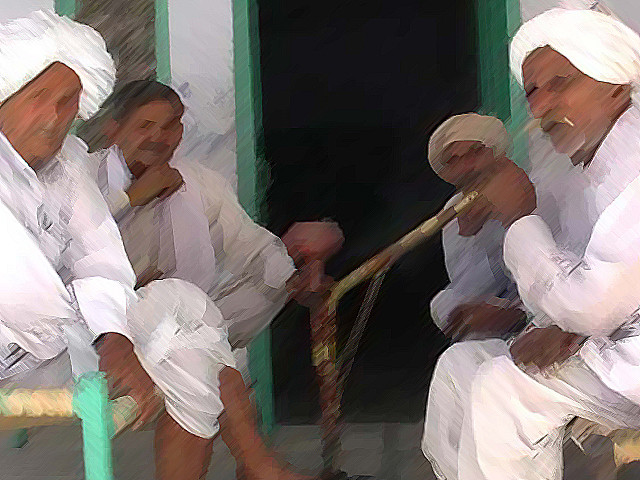If I were a murderer I’d love jirgas. In fact, I’d be thrilled at their judgments, at their twisted logic. After all, for any wrongdoing I committed, the retribution would fall not on me but on the women around me.
On May 6, 2011, a jirga in Sindh handed over 12 girls to the victim party to settle a murder case. The youngest of them was five-years-old. How does that even work I’d like to know. Kafka created a surreal world in which punishment for a crime was disproportionate to the offence. But we live in a reality where retribution is meted out to innocents.
The jirga elder is a respected and generally better-educated man in the village. What led him to conclude that the way to settle the score and maintain the peace of his area he’d have to hand over 12 girls – merely objects, not individuals – to appease the victim party. It’s not the wrongdoer who has to pay the price of his sin, it’s his chattel.
When Ghazala Shaheen’s uncle eloped with a woman of a higher caste, it was she who paid the price in the form of a vendetta rape. It was a jirga that declared Mukhtaran Mai ‘vani’ to settle the score between the Mastois and the Tatla clan to which Mai belonged.
We can lament the mindset that leads to judgments such as these – the mindset that treats women as objects that are easily traded to settle scores. But equally, blame falls on the enlightened. This is a time to take a hard look at ourselves and ask why there is such a chasm between the ideals of the educated urban population and the rest of the country, and what, if anything, have we done to bridge it.
These jirgas are banned by law but ironically, these outlawed systems are the providers of justice and peace to large swathes of people in rural areas. This in itself is one of the biggest indictments of our judicial, legal and police network. The formal legal system is so sluggish and inaccessible that people turn to jirgas simply because it is a system that works. This was one of the biggest appeals of the Taliban – the swift delivery of justice – and is one of the biggest failures of the state. As long as the void in the justice system exists, these barbarous stories will continue to bombard us.
Failure of justice = power to the misogynistic jirga
As long as the void in the justice system exists, jirgas will continue giving barbarous verdicts against women.



COMMENTS
Comments are moderated and generally will be posted if they are on-topic and not abusive.
For more information, please see our Comments FAQ